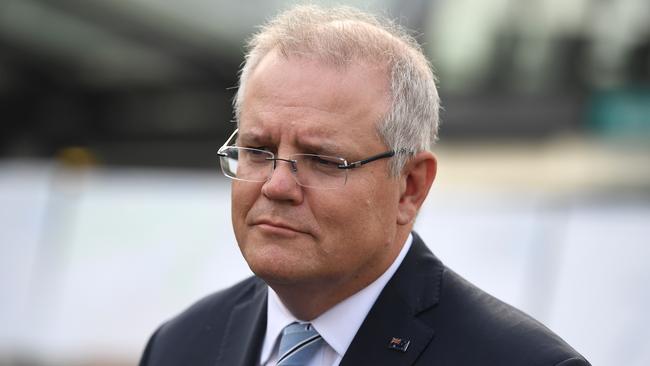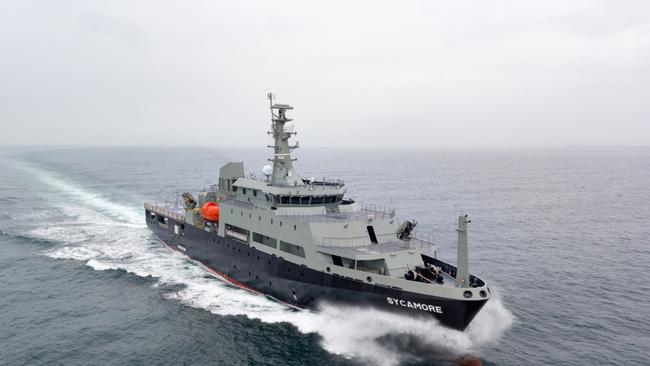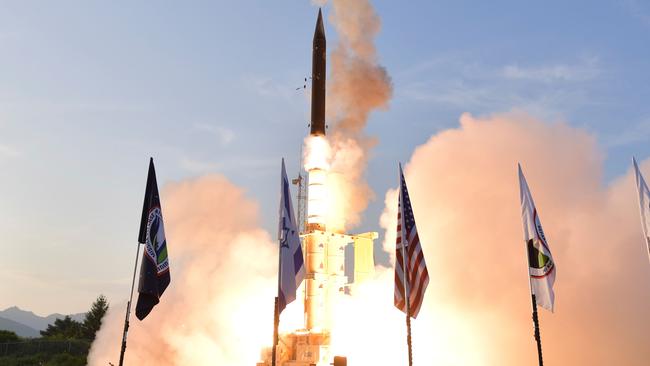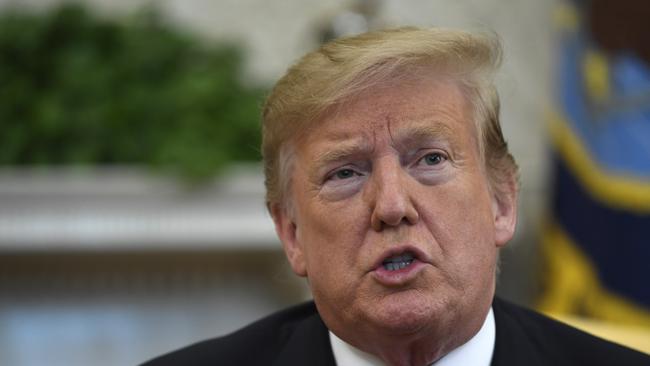Scott Morrison to outline bolstered defence spending on Wednesday
Australia will have the capability to send missiles into the air under a new model of defence spending to be announced by Prime Minister Scott Morrison today. It comes as China becomes increasingly aggressive in the Indo Pacific region.

NSW
Don't miss out on the headlines from NSW. Followed categories will be added to My News.
- Nearly 1000 Victorians refuse COVID testing as outbreak worsens
- Chinese water torture: Foreigners own 1.5 Sydney Harbours worth of our water
Australia will deploy new long-range missiles into the Indo Pacific to deter enemy attack as part of a $270 billion investment in our nation’s defence over the next decade.
As China becomes increasingly aggressive in the region, Australia will seek to project its own military power, bolstered by $800 million worth of AGM-158C Long Range Anti-Ship Missiles to be purchased from the US Navy.
The missiles, which are loaded onto a plane or ship, can travel up to 370km — about three times further than Australia’s current weapons capability.

MORE NEWS
Fresh twist as missing woman’s fugitive son on the run
First look at western Sydney’s mega Amazon warehouse
Man found dead in Sydney gym swimming pool
Prime Minister Scott Morrison will use a speech on Wednesday at the Australian Defence Force Academy in Canberra to outline Australia’s plan to flex its military muscles by investing in hi-tech weapons, cyber security and recruiting a further 800 defence personnel.
Mr Morrison will point to increasing tensions between China and other countries in the Indo Pacific region as potential threats to Australia.
“Tensions over territorial claims are rising across the Indo-Pacific region, as we have seen recently on the disputed border between India and China, in the South China Sea, and in the East China Sea,” the Prime Minister will say.
“The risk of miscalculation — and even conflict — is heightening.
“Regional military modernisation is occurring at an unprecedented rate. Coercive activities are rife.”
Mr Morrison will make the case for Australia needing the ability to strike against aggressors from long distances in order to deter potential attacks.
“(Australia) must be able to hold potential adversaries’ forces and infrastructure at risk from greater distance, and therefore influence their calculus of costs involved in threatening Australian interests,” he will say.
“This includes developing capabilities in areas such as longer-range strike weapons, cyber capabilities and area denial systems.”
The Government’s 2020 Defence Strategy Update to be released on Wednesday outlines the $270 billion over a decade, which is up from the $195 billion outlaid in the last Defence White Paper in 2016.

It includes $75 billion for new maritime vessels and undersea surveillance systems as part of the biggest regeneration of the Royal Australian Navy since World War II.
A further $65 billion will go towards air defence, including $17 billion for new fighter aircraft and up to $9.3 billion on developing hypersonic weapons.
The US, Russia and China have been in a race to develop the hi-tech weapons, which can travel at least five times the speed of sound and are almost impossible to intercept.
Land forces will also receive $55 billion over the next decade, including more long-range rockets and artillery systems.
Mr Morrison will say Australia needs to “face the reality” that the world has moved into a “less benign strategic era” that threatens the country’s prosperity and security.

“The simple truth is, even as we stare down the COVID pandemic at home, we need to also prepare for a post COVID world that is poorer, more dangerous and more disorderly,” he is expected to say.
“The enduring responsibility of government, however, is timeless — to protect Australia’s national interests, our sovereignty and the security of the Australian people.”
Mr Morrison will send a strong message to the Indo-Pacific region, telling the world Australia “won’t surrender” its freedoms or sovereignty “ever”.

“We’re about being good neighbours, pulling our weight and lending a hand,” he will say.
“We don’t seek to entangle or intimidate or silence our neighbours.
“We respect their sovereignty. And we expect others to respect ours.”
Mr Morrison will highlight the important role Australia and other countries such as Japan, India and South Korea can play in maintaining security in the region at a time when the US and China are at odds.
“Relations between China and the United States are fractious,’’ he’ll say.

